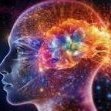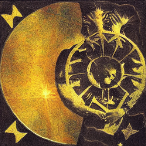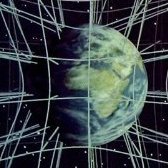All Activity
- Today
-
Yes, I think they either programmed GPT for sheer speed or don't have the training database set up in such a way thay it can find actual references. You can't really store links and similar data easily using default token system. Beyond a few pieces they're all too random. Did see where it Rickrolled one guy though, so who knows.
-
Markus Hanke started following ChatGPT is bullshit
-
There’s free AIs out there that do this, for example Perplexity.
-
It kind of goes beyond a mere interpretation though - SD implies that there’s no measurement independence, ie the experimenter isn’t actually free to choose his setup as he wishes. There will always be a prior correlation, no matter how you set up your experiment.
-
Yeah, honestly getting the actual source and not a probabilistic hallucination would not be that much additional code/memory. It's like the math issue. It's not hard for a computer to do math correctly, but someone still needs to be arsed to program in the ability.
-
Assuming that is iron and it is insoluble, it is going to be some kind of iron oxide or hydroxide. Most methods to quantify them (which I know) are not really suitable for DIY testing. You could open up your (used) filter and/or get a sample before to the filter (if you have a bypass valve) to check whether you have got visible turbidity (use a clear glass and white background to check for discoloration). Typically, municipalities also provide water testing (for a fee). A way to deal with that (other than replacing lines) is to use a backwash filter, I believe.
-
Phi for All started following help me experiment to establish curvature
-
Love this!
-
The Brave browser version puts the references at the bottom, like Wiki.
-
Which model one uses and how they prompt it are extremely relevant. Not all LLMs are GPTs nor are all GPTs at the same version nor trained on the same dataset(s). So are approximately half the voting populace.
-
I ballsed that one up!
-
Our water is not well water but comes from Pasco County, Florida municipal water supply, which is alleged to meet EPA requirements of 0.3 mg/L, which in Florida is same as 300 mcg/L. Like the quote, one of my favorites: “Man’s most valuable trait is a judicious sense of what not to believe.” Euripides I have hundreds more but I’ll spare you.
-

Bias in science (split from Evolution of religiosity)
swansont replied to Luc Turpin's topic in Other Sciences
Interesting use of “only” The “past few centuries” encompasses post-Newtonian physics, cosmology, a fair amount of geology, most of chemistry and all of modern biology IOW, the bulk of science. The author takes the same approach as you; “mind” as a proxy for all of science, and no concrete examples of how these alternate approaches would lead to success or how this “proactive role for human consciousness” would have any impact on any other fields of study. Since this is just a repetition, it does nothing to illuminate the issue or answer any questions. - Yesterday
-

Bias in science (split from Evolution of religiosity)
CharonY replied to Luc Turpin's topic in Other Sciences
Yet the article seems to address entirely different issues that you have brought forth so far. For starters, you have argued against bias in science, yet this article suggest subjectivity, i.e. a major source of bias, needs to be included. The reasoning is that it is an integral part that allows It is mostly a philosophical treatise and there is unfortunately not a lot on the practicalities in how it can or should be implemented. Also, it deals with a high-level idea on information and from what I see tries to include thoughts that are closer to social science methodologies. Unfortunately, it does not seem that this approach has been demonstrated to provide good applications in natural sciences (perhaps aside from more abstract areas such as information theory?). -
Well, we've all seen on this forum ample evidence of that. This claim not only seems true, but also both very funny, and a timely puncturing of the bubble of hype surrounding these verbose and fundamentally unintellligent programs. I realise that AI encompasses a far wider scope than LLMs but, as they stand today, LLMs look to me pretty meretricious. It may be that their chief legitimate use is in collating references for the user to determine, for himself, which one are good and which ones are not, i.e. just a superior kind of search engine.
-
Alter2Ego has been banned for preaching. (but not for saying, “Hark!”)
-
swansont started following ChatGPT is bullshit
-
And now there’s a journal article declaring this to be the case https://link.springer.com/article/10.1007/s10676-024-09775-5 We argue that these falsehoods, and the overall activity of large language models, is better understood as bullshit in the sense explored by Frankfurt (On Bullshit, Princeton, 2005): the models are in an important way indifferent to the truth of their outputs.
-
MSC: The "meat" of your argument actually provided support for the need of an Intelligent Designer. You should have stayed away from the argument about the complexity of the eye. Then to shoot yourself in the foot further, you used the watchmaker argument. Alter2Ego ________________ "That people may know that you, whose name is JEHOVAH, you alone are the Most High over all the earth." ~ Psalms 83:18
- 3 replies
-
-1
-

Bias in science (split from Evolution of religiosity)
Luc Turpin replied to Luc Turpin's topic in Other Sciences
Fron “Science of the Subjective” by R.G. Jahn, B.J. Dunne, which captures more eloquently than I cloud, the need to amalgamate, once again, the subjective and objective parts of science. Over the greater portion of its long scholarly history, the particular form of human observation, reasoning, and technical deployment we properly term “science” has relied at least as much on subjective experience and inspiration as it has on objective experiments and theories. Only over the past few centuries has subjectivity been progressively excluded from the practice of science, leaving an essentially secular analytical paradigm. Quite recently, however, a compounding constellation of newly inexplicable physical evidence, coupled with a growing scholarly interest in the nature and capability of human consciousness, are beginning to suggest that this sterilization of science may have been excessive and could ultimately limit its epistemological reach and cultural relevance. In particular, an array of demonstrable consciousness-related anomalous physical phenomena, a persistent pattern of biological and medical anomalies, systematic studies of mind/brain relationships and the mechanics of human creativity, and a burgeoning catalogue of human factors effects within contemporary information processing technologies, all display empirical correlations with subjective aspects that greatly complicate, and in many cases preclude, their comprehension on strictly objective grounds. However, any disciplined re-admission of subjective elements into rigorous scientific methodology will hinge on the precision with which they can be defined, measured, and represented, and on the resilience of established scientific techniques to their inclusion. For example, any neo-subjective science, while retaining the logical rigor, empirical/theoretical dialogue, and cultural purpose of its rigidly objective predecessor, would have the following requirements: acknowledgment of a proactive role for human consciousness; more explicit and profound use of interdisciplinary metaphors; more generous interpretations of measurability, replicability, and resonance; a reduction of ontological aspirations; and an overarching teleological causality. Most importantly, the subjective and objective aspects of this holistic science would have to stand in mutually respectful and constructive complementarity to one another if the composite discipline were to fulfill itself and its role in society. -
exchemist: I am quoting scripture from Jehovah's inspired word, the Judeo-Christian Bible, for the benefit of people following in this thread who happen to believe in the Bible. You don't qualify as a Bible believer, obviously, so don't flatter yourself into thinking I was quoting scripture for people who insist in believing in Darwin's macroevolution myth. Alter2Ego ________________ "That people may know that you, whose name is JEHOVAH, you alone are the Most High over all the earth." ~ Psalms 83:18 Bufofrog: Earth alone is conducive to life; it is not a "lucky fluke." That's the way Almighty God intended it to be. "As for the heavens, they belong to Jehovah, But the earth he has given to the sons of men." (Psalm 115:16) The other planets serve various purposes as part of our fine-tuned universe. Some of them support life on earth by protecting earth itself. Scientific evidence proves that. Alter2Ego _________________ "That people may know that you, whose name is JEHOVAH, you alone are the Most High over all the earth." ~ Psalms 83:18
- 3 replies
-
-2
-
MSC: If anything, your OP actually supports the argument that there had to have been an Intelligent Designer aka Almighty God Jehovah. One of the worst examples you could have used to argue against a supernatural Intelligent Designer/God is the complexity of the eye. As stated by sources: "The human eye is brilliantly complicated, made up of a superb, interconnected system of approximately 40 individual subsystems. . . . There are approximately six to seven million cone cells. All of them are concentrated near the macula, the oval-shaped pigmented area in the centre of the retina. Additionally, there are three varieties of cone cells that are sensitive to different colours of light. Between them, they span the visual range of wavelengths of the electromagnetic spectrum (400–700 nm)" https://creation.com/complex-human-eye But, hark! Let's not forget about the even more complicated creation, the brain, which plays an important role along with the eye to produce vision: "After an image reaches the optic nerve, it travels along it to the visual cortex in the occipital lobe at the back of the brain. Using our eyes takes an incredible amount of brainpower. 20% of the brain is dedicated to visual processing, but it takes another 40% to help with vision in connection to meaning, motor functions, touch, and attention. Many times a second, the brain absorbs and processes a new set of visual data, and that’s how we perceive, understand, and react to motion." https://visionsource-opticalperspectives.com/2023/05/03/what-do-you-know-about-your-eyes-anatomy/ Now, if you want to claim that all of that happened at random/by itself, without the intervention of an intelligent being to guide the outcome, resulting in vision, suit yourself. In fact, you made it clear in the last paragraph of your OP that it is simply about your personal denials and the fact you don't want to accept the reality of a supernatural Intelligent Designer. You stated at line 1 of your final paragraph. "The Teleological argument has just never sat right with me." That's right. It's all about you and your personal philosophy. Alter2Ego ________________ "That people may know that you, whose name is JEHOVAH, you alone are the Most High over all the earth." ~ Psalms 83:18
- 3 replies
-
-2
-
It seems to me that our 'fine-tuned universe' is actually not conducive to life at all. So much so that there is only a thin shell around a single planet where life has managed to hold on as far as we know. There are over 5000 exoplanets that have been discovered and the overwhelming majority of them could not harbor life and most probably none of them contain life. Life on earth appears to be a lucky fluke.
-
You seem to be a hopeless case. It's hard to credit how stupid it is to quote religious scripture as evidence of the truth of the religion in question. Self-referential or what?
-
Thanks. Well hopefully that will change GIAN🙂XXX
-
Alter2Ego changed their profile photo
-
Dimreepr: Dawkins is wrong because his entire premise: "God, almost certainly does not exist," because it's "a persistent false belief held in the face of strong contradictory evidence" is wrong. Evidence for the existence of an Intelligent Designer aka Jehovah God is revealed in the creations around us and our fine-tuned universe. Dawkins has not presented any "strong contradictory evidence" that says otherwise. He is simply spouting his personal philosophy. "For his invisible qualities are clearly seen from the world’s creation onward, because they are perceived by the things made, even his eternal power and Godship, so that they are inexcusable." (Romans 1:20) Alter2Ego
- 3 replies
-
-1
-
Klapacusis you are right it is trivial. This is a game of trivial pursuit. I don’t know the factoring pair of this 2048 bit semiPrime. But if the number of the equation where it equals zero is correct than the factor is less than that number. And I added the percentage of error which brings us closer to that smaller factor. I know your argument is that it is still a large number. However checking all odd numbers descending from my estimate should be close enough to not require as much computation. 4*10^37 divided by 2. Still a bunch of numbers but more manageable. Still too many numbers but the actual factor should be close (slightly less) than the estimate. And if anyone could add any advice in crunching numbers, particularly in Mathematica I would appreciate the help. There is a function call Monitor. I don’t know how to “keep track” of what is happening behind the scenes when Mathematica is processing. It just says, “Running.” I don’t know if it is going to take hours, days, or months. I understand why someone would not believe my methods. We are not supposed to be able to factor semiPrimes. It is impossible. But is it possible for impossible to exists? I chose the largest RSA number that is open source. I don’t know the factors, but I feel I am getting close. RSA is critical for authentication using digital signatures. It is still one of the most used cryptography schemes on the web. I have recently read that the original Xbox used RSA to secure its hardware. I didn’t know cryptography was used in hardware. But don’t be afraid to factor semiPrimes because it will mean the end of RSA. I think it was flawed from the beginning. Secrets can not be keep if you share them. By encrypting secrets you have just marked them as valuable. That is why misinformation is so prevalent in media. 1977 it made sense to encrypt you secrets. Now it is difficult to determine truth from reports. For instance Trump is found guilty on trial. He says witch-hunt ; they say guilty of influencing the election. We hear the verdict, but we weren’t at the trial. We didn’t see all the evidence. And if the County is 50 50 Trump / Biden why wasn’t this reflected in the jury? Politics aside who is right? It all is based on which candidate you believe. But who is trustworthy? I think the true is the same with cryptography. We trust is because we can mathematically test it. If the numbers require too many brute force attempts it is secure. But which crypto systems are trustworthy. If I do go on to break RSA, I hope to break it along with you. If it works, I showed you how to do it. And that you can believe the answer. If I fail and it still is impossible, we have more trust in RSA.
-
zapatos started following Can you sense when someone looks at you?
-
Well if that is not proof I don't now what is. Certainly no one just randomly blinks unless they are being observed.









